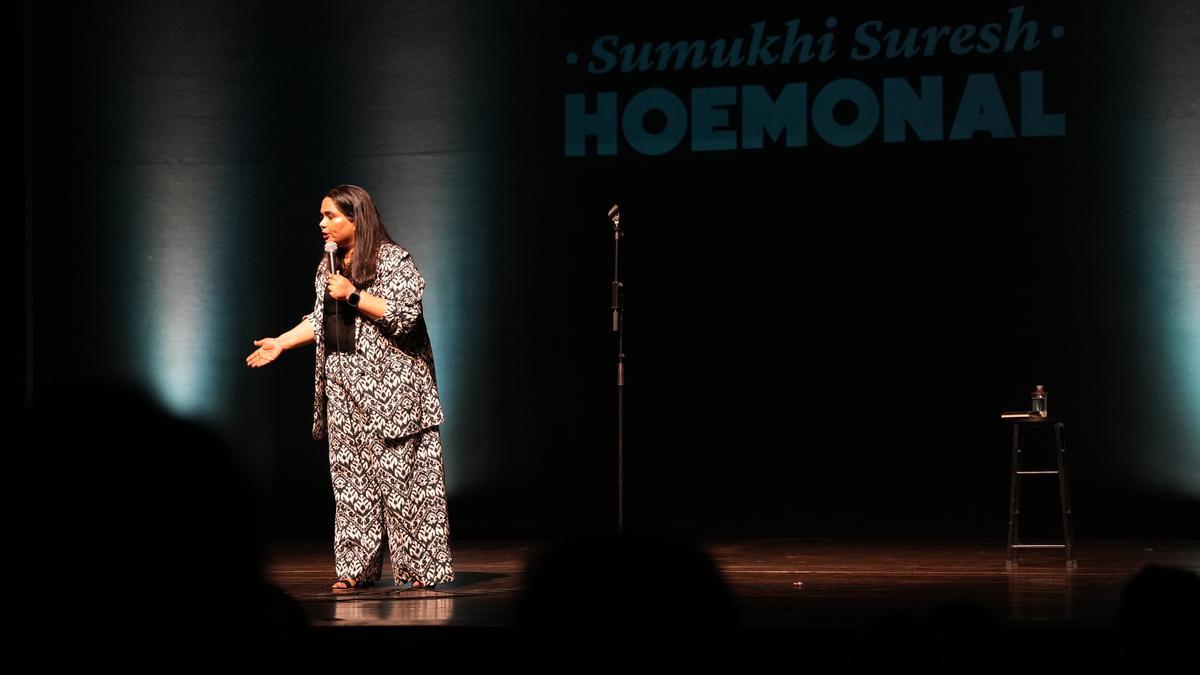
Apple TV’s original series ‘Sugar’ arrives as a brooding representation of noir archetypes, yet its overwrought tale of moral contrivance is shadowed by an expansive Letterboxd cataloguesque ambition. The fedora of enigma is tipped stylishly upon the head of its primary character in this novel take on the well-worn genre; however, beyond its chic exterior, the series trips over its own convoluted narrative—which upon a bombshell revelation, rather than elevating the storyline, sends it careening into a dark alley of squandered opportunity.
Helmed by Mark Protosevich, Colin Farrell assumes the guise of John Sugar, a private investigator whose attire is lifted directly from the pages of classic Hollywood. With each fiber of his being aim to embody the noir protagonist, Sugar is cloaked in an ominous charisma that belies his true passion—cinema. His sharp suits and slick hairdo may scream “detective,” but his soul screams “film buff,” a trait that carries both charm and peril for those who dare to enter his sphere.
Director Fernando Meirelles, celebrated for his work on critically applauded films like ‘City of God’ and ‘The Constant Gardener,’ attempts to interlace the series with a mist of old-timey allure reminiscent of film noir’s golden years. Yet, his efforts capsize in a mire of clichés and affected stylistic choices. Employing exaggerated techniques from fish-eye lensing to close-up iris shots, ‘Sugar’, albeit intended as a homage, skews closer to caricature than a heartfelt paean to the films of yesteryear.
‘Sugar’ sets off on what appears to be a straightforward narrative: John Sugar is on the hunt for a missing girl, the granddaughter of a famed movie producer. But Olivia’s vanishing act soon morphs into a mere vehicle for Sugar to cruise through Los Angeles in his classic car, dropping film references like breadcrumbs for cineastes. Yet, the true enigma of the series is not the missing girl, but the labyrinthine twists and subplots that desperately seek to intrigue.
Midway through, a radical plot twist attempts to reboot the momentum. This moment—Fraught with promise—ultimately undermines the suspense it previously sought to build, starting a narrative fresh that feels disjointed from its inception.
As the plot wanders, so does ‘Sugar’s’ commitment to its audience, revealing a preference for safeguarding its mysteries rather than weaving a compelling tale. The series struggles to balance its duality—the initial mystery dimmed by the far more elaborate scheme it later unveils.
Amy Ryan as Melanie, the dry-witted foil to Farrell’s Sugar, lights up their scenes with exchanges steeped in noir tradition; a dialogic dance in a bar smothered in shadows and secrets. But even Ryan’s brilliance can’t distract from the hints that promise an unbelievable trait in Sugar, who can allegedly consume alarming amounts of alcohol without succumbing to inebriation—a nod perhaps too outlandish for even the most willing suspension of disbelief.
Conversely, Olivia’s case loses its emotional grip as the series advances, settling into a medley of formulaic developments while dangling Sugar’s private mysteries just beyond reach—until it’s almost too late for viewers’ investment.
Colin Farrell’s portrayal of Sugar shines as the series’ saving grace. His performance, rife with the hardened charm befitting a noir hero, does its best to breathe life into a series marred by narrative indulgence. Even so, not even Farrell’s screen lure is sufficient to rescue ‘Sugar’ from its encumbrance of self-imposed narrative convolution.
In earlier episodes, the series toys with meta-commentary on cinema, quoting a line from John Cassavetes’ ‘Minnie and Moskowitz’ as a lens to view its own storytelling: “You know, I think movies are a conspiracy.” This seems to be the message ‘Sugar’ itself strains to convey, ultimately obscured by its own laborious build towards an overarching conspiracy.
This misguided attempt to sustain an aura of mystery culminates in a misaligned detective thriller, overstretched and laden with false leads. ‘Sugar’ may captivate those enamoured by neo-noir visuals, yet its over-engineered plot fails to fulfil expectations. Hopes linger for Apple TV+’s successive offerings to chart a more persuasive course, lest it continue to leave audiences longing for the detective finesse of yesteryear’s silver screen legends.
Currently catering its weekly episodic intrigue, ‘Sugar’ is available for consumption on Apple TV+, inviting noir enthusiasts and critique connoisseurs alike into its shadowed realm of English cinema, reviews, and television.










